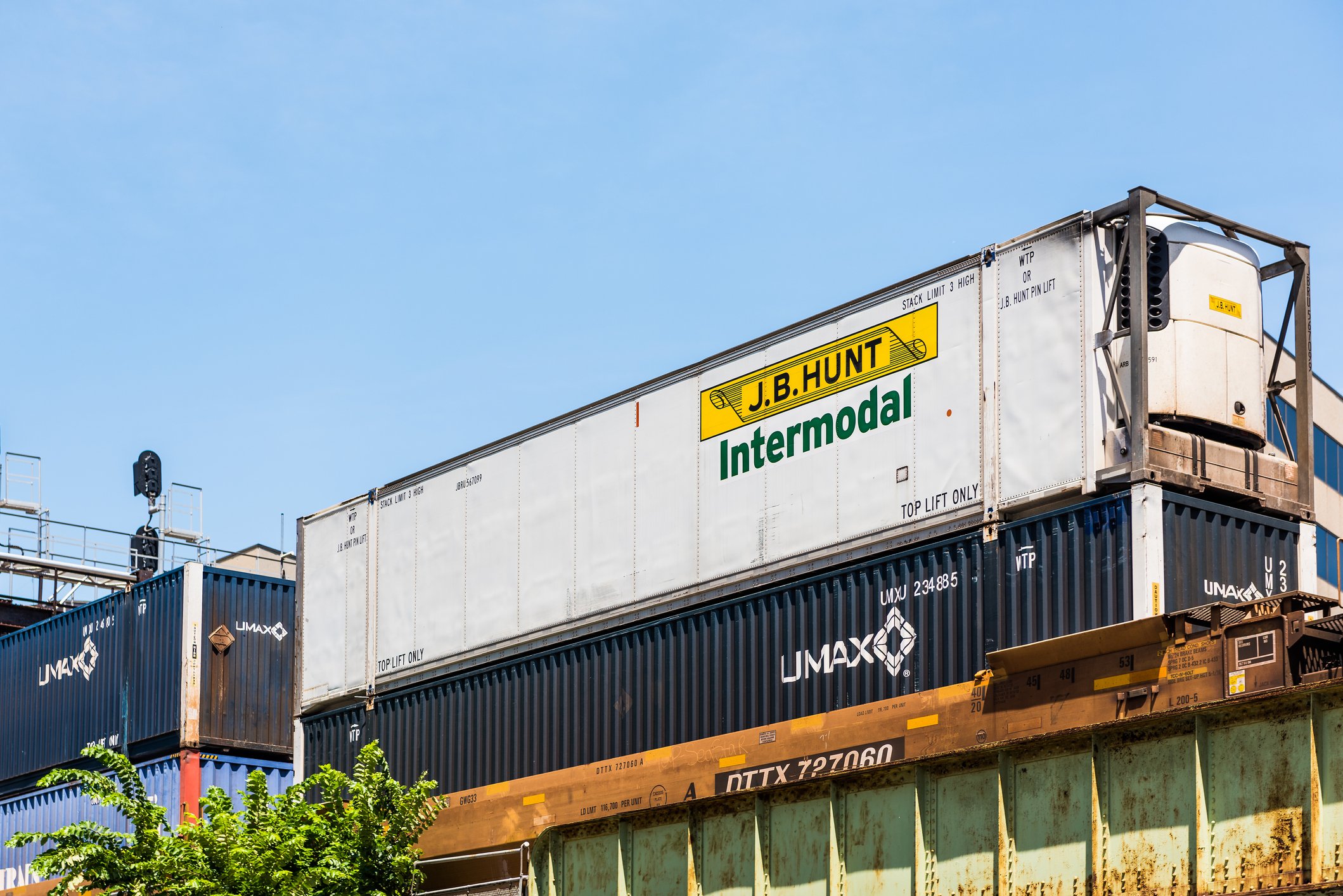When J.B. Hunt (JBHT +4.12%) reported its financial results last week, it was kind of like that old "tale of two cities." On the one hand, there were the trucking company's quarterly results for the fourth quarter, which seemed fantastic. And then there were the results for the year, which ... didn't.
Let's address them one at a time, beginning with:

Image source: Getty Images.
J.B. Hunt's Q4 results
Q4 numbers at J.B. Hunt, at first glance, looked bright and shiny. $2.45 billion in Q4 sales grew only 6%, granted. But the profits earned on those revenues grew 67% year over year, to $1.35 per share.
Those numbers actually sound better than they were, however, because Hunt's year-ago profits were weighed down by "charges for contingent liabilities related to the arbitration with BNSF Railway Company," making Q4 2019 profits look better by way of comparison. Back out the one-time charges, though, and Hunt explains that its operating income would have "decreased 20% from fourth quarter 2018."
J.B. Hunt's full-year results
That's the value of looking at numbers context. To further see how things are going at J.B. Hunt, let's draw back and look at the year as a whole.
For all of fiscal 2019, Hunt collected $9.17 billion in revenue. That was up 6% year over year, so very similar to Q4's results. Profits-wise, though, the results couldn't look more different. Instead of operating profit surging by two-thirds, it crept up only 7%, to $4.75 per share, or almost as slowly as revenues grew.
What it means to investors
Now the question: Is that growth rate fast enough to justify the stock price?
With only moderate levels of debt (about $1.3 billion on a $12.1 billion market capitalization) on its balance sheet, I think it's fair to evaluate J.B. Hunt stock by valuing it on either price-to-earnings or (more conservatively) price-to-free cash flow, not adjusting for net debt. By the former measure, the stock sells for 23.8 times its $516 million in trailing GAAP earnings.
Free cash flow at Hunt isn't great, however. Although up more than double over 2018's $202 million in cash profits, Hunt generated only about $410 million in cash profit in 2019. So when valued on free cash flow, Hunt stock sells for a 30x multiple -- about 20% more expensive than its P/E ratio makes it appear.
Whichever valuation you choose to guide you, it seems to me that these prices are too high for a stock that's growing earnings at only 7% or so.
Granted, it's possible J.B. Hunt will grow its earnings faster in future years than it did in 2019. Although sales were relatively flat (up less than 1%) in both the company's intermodal and "integrated capacity solutions" businesses, sales surged 25% in Hunt's dedicated (contracted) trucking division. That's Hunt's most profitable division (albeit still not hugely profitable at an operating margin of only 11.1%). With continued growth there, I suppose it's possible Hunt could grow earnings at the 13% long-term earnings growth rate that Wall Street analysts project for it (according to data from S&P Global Market Intelligence).
Still, even when giving Hunt every benefit of the doubt -- valuing the stock on P/E instead of its more expensive P/FCF ratio, ignoring the debt load, and even assuming a 13% growth rate that's nearly twice what Hunt accomplished in 2019 -- I think J.B. Hunt stock is simply too expensive to buy right now.





